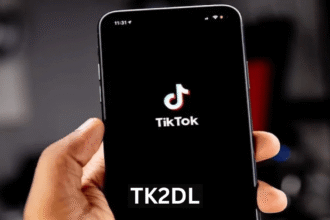Introduction to the 305-209-9818 Scam
Scams are becoming increasingly sophisticated, and one number that seems to be making the rounds is 305-209-9818. If you’ve received a call from this number, you might be wondering whether it’s legitimate or just another attempt to swindle unsuspecting victims. With technology at their fingertips, scammers can easily manipulate caller ID and create a sense of urgency to trick people into providing personal information or money. Understanding how these scams operate is crucial for protecting yourself and your loved ones. Let’s dive deeper into what makes 305-209-9818 a potential threat and how you can stay safe from phone scams in general.
How Does the Scam Work?
Scammers often use sophisticated techniques to manipulate unsuspecting victims. The 305-209-9818 scam typically begins with an unsolicited phone call.
When you answer, a smooth-talking individual may pose as a representative from a reputable company or even a government agency. Their goal is simple: to extract personal information from you.
They might create a sense of urgency, claiming that your account has been compromised or you’re eligible for some exclusive offer. This pressure tactic can cloud judgment and lead individuals to divulge sensitive details.
In many cases, they employ caller ID spoofing, making it appear as though the call is coming from a legitimate source. This false security further entices people to engage in conversation.
Once trust is established, the scammer will ask for personal data such as Social Security numbers or bank account information—everything needed for identity theft or financial fraud.
Signs of a Phone Scam
Recognizing a phone scam can save you from potential losses. One major sign is the caller’s urgency. If they pressure you to act quickly, it’s a red flag.
Another warning signal is inconsistencies in their story. Scammers often provide vague details or fail to answer your questions clearly.
If the caller demands personal information right away, tread carefully. Legitimate organizations usually don’t ask for sensitive data over the phone.
Be wary of unsolicited calls, especially if they promise prizes or rewards that seem too good to be true.
Listen closely for unusual language or accents that sound off compared to how someone would typically speak in professional settings. Trust your instincts; if something feels wrong, it probably is.
What to Do If You Receive a Call from 305-209-9818?
If you receive a call from 305-209-9818, the first step is to remain calm. It’s easy to panic when confronted with suspicious calls, but staying composed can help you think clearly.
Do not engage with the caller. Politely hang up if they request personal information or make odd demands. Trust your instincts; if something feels off, it probably is.
Consider blocking the number on your phone. This isn’t just about avoiding future calls; it also sends a message that you’re not an easy target for scams.
Report the number to local authorities and consumer protection agencies like the Federal Trade Commission (FTC). Your report can help others avoid falling victim to similar tactics.
Keep a record of any details related to the call—time, date, and what was discussed. This information could be useful later on if needed for further action.
Tips for Protecting Yourself from Phone Scams
Stay vigilant when answering calls from unknown numbers. If you don’t recognize the caller, let it go to voicemail. Legitimate businesses will leave a message.
Always verify the identity of any caller asking for personal information. Hang up and call back using official contact details from their website.
Do not share sensitive data over the phone unless you initiated the conversation. Scammers often create a sense of urgency or fear to manipulate victims.
Consider installing call-blocking apps that can filter out suspicious numbers, including 305-209-9818. Many smartphones have built-in features for this as well.
Educate friends and family about common scams so they too can protect themselves. Awareness is key in preventing these fraudulent activities from spreading further into your circle.
Report any suspicious calls to local authorities or consumer protection agencies to help track down scammers and prevent future incidents.
Other Common Phone Scams to Be Aware Of
Scammers are constantly evolving their tactics. It’s essential to be aware of various schemes that might target you.
One prevalent scam is the IRS impersonation call. Scammers pose as tax officials, threatening legal action if payments aren’t made immediately. This tactic preys on fear and urgency.
Tech support scams also remain popular. Fraudsters often claim they’re from well-known companies, saying your device has a virus. They’ll typically ask for remote access or payment for non-existent services.
Romance scams have surged with online dating’s popularity. Individuals may build relationships over time before asking for money under false pretenses.
Lottery or prize-winning scams promise large sums of money in exchange for personal information or fees to claim winnings that don’t exist at all. Always verify before disclosing any details!
Conclusion: Stay Informed and Safe!
Staying informed about potential scams is crucial in today’s digital age. The rise of phone scams, such as the one associated with 305-209-9818, highlights the need for vigilance. By recognizing how these scams operate and familiarizing yourself with common signs, you can better protect your personal information.
If you do receive a call from this number or any unfamiliar source, remember to hang up and verify before taking any action. Taking proactive steps—like using caller ID blocking features and registering with the National Do Not Call Registry—can also help minimize unwanted calls.
Educating yourself on other prevalent phone scams can further arm you against deceptive practices. Always stay alert and trust your instincts when something doesn’t seem right.
Remember that staying safe involves not just reacting but being proactive in safeguarding your information. As scammers become more sophisticated, so should our defenses. Keep sharing knowledge with friends and family; it can make all the difference in protecting everyone from these threats.









